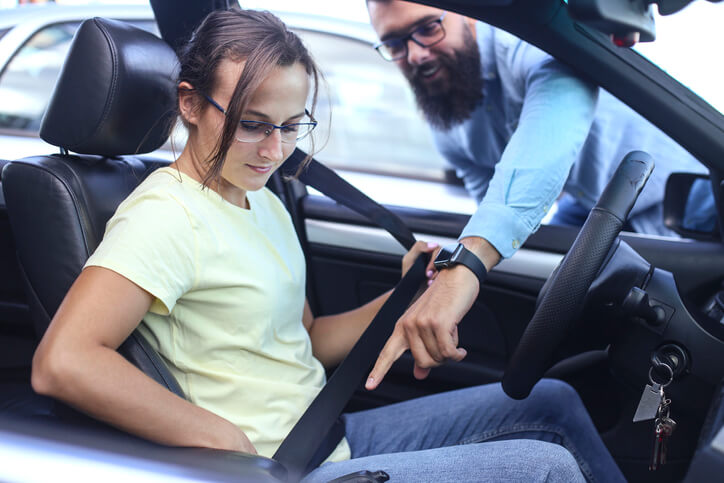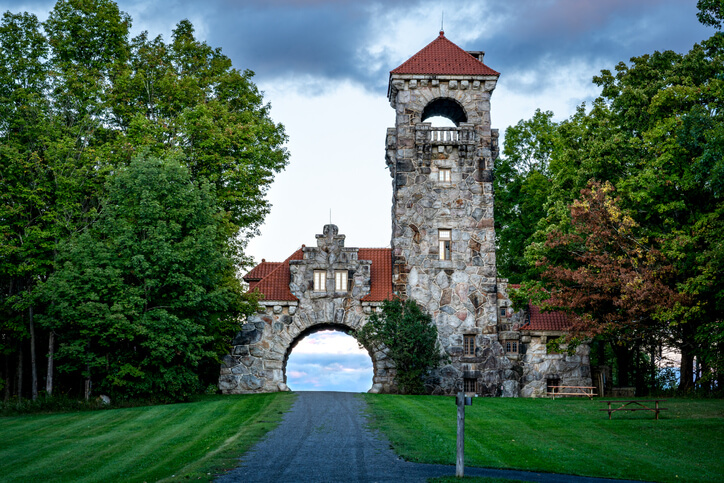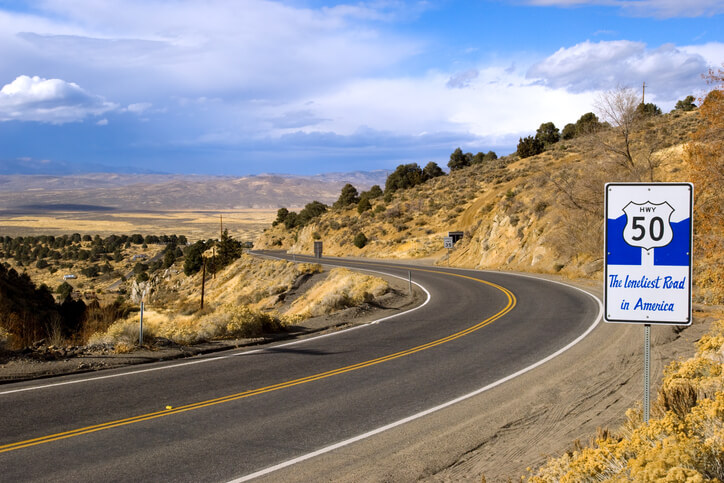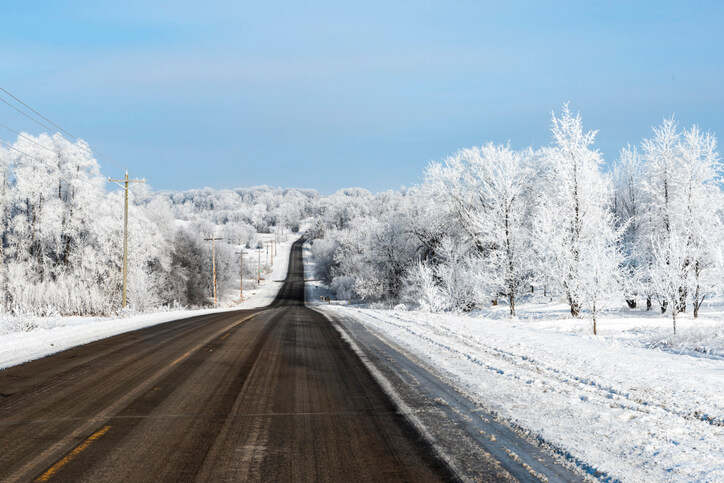Are you a Pennsylvania resident or planning to drive through the Keystone State? Navigating the roadways and understanding the driving laws in PA can be challenging. But fear not. We’ve got you covered! This comprehensive guide will provide you with everything you need to know about Pennsylvania’s driving laws, from licensing requirements and insurance regulations to safety rules and DUI consequences.
By the end of this article, you’ll be well-equipped with the knowledge to safely and confidently navigate Pennsylvania’s roads, avoid traffic violations, and stay on the right side of the law. So, buckle up and get ready to delve into the world of driving laws in PA!
Key Takeaways
- Understanding Pennsylvania’s driving laws is essential for all drivers.
- Licensing requirements, insurance regulations, and safety rules are in place to protect drivers and pedestrians.
- Pennsylvania implements a Graduated Driver Licensing program with specific restrictions on young drivers’ points systems and DUI consequences for traffic violations.
Understanding Pennsylvania's Driving Laws
Pennsylvania’s driving laws aim to ensure safe and responsible driving across the state. These laws encompass licensing requirements, insurance regulations, and safety rules, all of which play a crucial role in protecting both drivers and pedestrians. Whether you’re a seasoned driver or just starting, understanding these laws is essential for staying safe and avoiding potential penalties.
But how do these laws come into effect, and what do they mean for you as a driver? Proceeding further, we will delve into the specifics of Pennsylvania’s driving laws, shedding light on processes and requirements for obtaining a driver’s license, mandatory insurance coverage, and key safety rules and regulations. Hence, let us proceed.
Licensing Requirements
Obtaining a driver’s license in Pennsylvania involves meeting certain age and experience requirements and passing a series of tests. For young drivers, the Graduated Driver Licensing (GDL) program helps navigate the process by providing a step-by-step approach to gaining experience and meeting licensing criteria.
Applying for a driver’s license entails:
- Providing the original Social Security card
- One form of identification from List A
- Two forms of proof of residency
- Paying the requisite fees via money order
For those aged 16, obtaining a restricted driver’s license involves a six-month waiting period and completing at least 65 hours of supervised driving time, including 10 hours at night and 5 hours during inclement weather. Remember, there are restrictions for drivers with a restricted license, such as limits on the number of passengers under 18 and prohibited driving hours between 11 PM and 5 AM.
Insurance Regulations
As a vehicle owner in Pennsylvania, PennDOT requires you to maintain valid vehicle liability insurance on your registered vehicle. The state mandates specific minimum coverage limits, which include:
- $15,000 for injury or death of one person in an accident
- $30,000 for injury or death of more than one person
- $5,000 for damage to the property of another person
A prerequisite for vehicle registration is maintaining liability insurance. Non-compliance can result in a three-month suspension of your vehicle registration privilege. Reinstatement of registration requires obtaining permission from PennDOT and paying any necessary fees.
Moreover, driving without auto insurance can lead to fines of up to $300, suspension of your driver’s license, registration, and license plate for a period of three months. Always carry proof of insurance in your vehicle to avoid these penalties.
Safety Rules and Regulations
Staying safe on Pennsylvania’s roads is a top priority, and the state has implemented safety rules and regulations to help achieve this. These include seatbelt usage, child safety seats, and cell phone restrictions while driving. To obtain a regular driver’s license, drivers must complete a PennDOT-approved driver training program.
In Pennsylvania, the following regulations apply:
- Drivers and front-seat passengers aged 18 and over are required to wear a seatbelt.
- Children under 8 years old must be appropriately restrained, with specific regulations for car and booster seats depending on the child’s age, height, and weight.
- Texting while driving is also illegal, although using a handheld or hands-free device for phone calls is allowed.
Adherence to these safety rules and regulations enables you to contribute to a safer driving environment for all road users in Pennsylvania.
Navigating PA's Graduated Driver Licensing (GDL) Program
For young drivers in Pennsylvania, the Graduated Driver Licensing (GDL) program offers a structured approach to gaining experience and confidence. The GDL program consists of three phases: the Learner’s Permit phase, the Junior License phase, and the transition to an Unrestricted License.
As young drivers progress through each phase, they’ll encounter different requirements and restrictions designed to help them develop safe and responsible driving habits. Each stage of the GDL program will be detailed, supplying you with comprehensive information to successfully navigate this crucial step in your driving journey.
Learner’s Permit Phase
The Learner’s Permit phase is the first step in the GDL process and requires supervised driving, passing a knowledge test, and meeting specific age and medical requirements. Pennsylvania’s minimum age requirement for obtaining a Learner’s Permit is 16 years old.
During this phase, permit holders must:
- Be accompanied by a licensed driver aged 21 or older, or a parent, guardian, or spouse aged 18 or older who is also licensed
- Follow restrictions on driving between 11 PM and 5 AM
- Adhere to limits on passengers under 18.
Accumulating six points or more on a driving record will have serious consequences. Driving privileges will be revoked for 90 days for the permit holder.
Junior License Phase
The Junior License phase comes after completing the Learner’s Permit phase. To obtain a Junior License, drivers under the age of 18 must complete a 6-month waiting period and 65 hours of behind-the-wheel experience, including 10 hours of night driving and 5 hours of bad weather driving.
During the Junior License phase, drivers must adhere to specific restrictions, such as:
- Driving only between 11 PM and 5 AM for work or volunteering purposes
- In the first six months, junior license holders are limited to having only one passenger under 18 in the car, with this number increasing to three passengers after the initial six months.
- A licensed driver aged 21 and above or a licensed spouse or guardian aged 18 and above must accompany the junior license holder every time they drive.
Transitioning to an Unrestricted License
The final phase in the GDL program is transitioning to an Unrestricted License. To do so, drivers must:
- Be at least 18 years old
- Maintain a clean driving record
- Complete a PennDOT approved driver training program
- Obtain consent from parents, guardians, or spouse
These are the requirements for obtaining an Unrestricted License, including providing acceptable forms of documentation, such as a notarized affidavit.
Fill out the application form DL-59 to apply for an unrestricted license prior to your 18th birthday. Mail the form to PennDOT to complete the process. Once you have met all the requirements and submitted your application, you’ll be well on your way to enjoying the freedom and responsibility of holding an unrestricted driver’s license in Pennsylvania.
Dealing with Traffic Violations and Penalties
Traffic violations and penalties in Pennsylvania include:
- Moving violations, such as speeding, running a red light, or reckless driving
- Non-moving violations, such as parking violations or expired registration
- A points system for certain offenses, where accumulating too many points can lead to license suspension
Understanding these violations and penalties can help you avoid costly fines and potential legal consequences when you pay.
This section covers various types of traffic violations in Pennsylvania, the points system, and the license suspension process. Familiarity with these laws can help circumvent costly errors and uphold a clean driving record.
Moving Violations
Moving violations are offenses committed while your vehicle is in motion, such as speeding, running red lights, and reckless driving. These violations can result in fines, points added to your driving record, and even license suspension in some cases.
In Pennsylvania, the most common moving violations include:
- Exceeding the speed limit.
- Neglecting to obey a stop sign.
- Passing another vehicle without due care.
Fines for these offenses can range from $35 for speeding, with an additional $2 for every mile per hour over the limit, to $100 for disregarding a traffic signal. Reckless driving, which involves operating a vehicle with willful or wanton disregard for safety, is classified as a summary offense and carries a fine of $200 upon conviction.
Non-Moving Violations
Non-moving violations include offenses committed when your vehicle is not in motion, such as parking infractions, expired registration, and lack of insurance. While these violations typically result in fines and penalties, they do not add points to your driving record.
Fines for parking infractions in Pennsylvania vary depending on the specific violation, with costs for a summary parking violation ranging from $6 to waived fines in certain situations. Driving with an expired registration can result in penalties ranging from $100 to $500, plus additional court costs and a mandatory 3-month driver’s license suspension. You must pay the fines and restoration fee to avoid further penalties.
Failing to maintain auto insurance can lead to a minimum fine of $300, a three-month suspension of your vehicle registration, and a three-month suspension of your driver’s license.
Points System and License Suspension
The points system in Pennsylvania assigns points to specific driving violations to promote safe driving practices and reinforce appropriate driving behavior. Points are added to your driving record upon conviction of a traffic violation, with the amount of points assigned based on the severity of the violation.
If you accumulate 11 points or more on your driving record in Pennsylvania, your license will be suspended. Points remain on your record for 12 consecutive months from the date of the last violation or date of restoration, with three points removed after the 12-month period. License suspension due to points involves accumulating six or more points on your driving record. At this point, PennDOT will issue a written notice requiring you to take a written exam on safe driving practices. Failure to respond to the citation or the written exam may result in license suspension.
DUI Laws and Consequences in Pennsylvania
Driving under the influence (DUI) laws in Pennsylvania are stringent and enforced to protect the safety of all road users. Penalties for driving under the influence of alcohol or drugs can be severe, with specific Blood Alcohol Content (BAC) limits in place and consequences that vary depending on the number of offenses and BAC level.
This section will delve into the BAC limits in Pennsylvania and the penalties and fines related to DUI offenses. Comprehending these laws and their repercussions facilitates informed decision-making and prevention of severe consequences associated with driving under the influence.
Blood Alcohol Content (BAC) Limits
Blood Alcohol Content (BAC) limits in Pennsylvania vary depending on age and license type. Here are the legal BAC limits:
- For drivers over 21, the legal BAC limit is 0.08%
- For drivers under 21, the legal BAC limit is 0.02%, reflecting Pennsylvania’s Zero Tolerance Law for underage drivers
- Commercial drivers have a BAC limit of 0.04%
Pennsylvania’s Zero Tolerance policy imposes severe consequences for drivers under the age of 21 found guilty of driving with any amount of alcohol in their system. Penalties include DUI charges, license suspension, and fines. Understanding and adhering to these BAC limits is crucial for maintaining your driving privileges and ensuring the safety of yourself and others on the road.
DUI Penalties and Fines
DUI penalties and fines in Pennsylvania depend on the number of offenses and the BAC level at the time of the offense. Penalties can include jail time, license suspension, and fines.
For first-time DUI offenders, penalties typically include:
- A 1st-degree misdemeanor charge
- An 18-month license suspension
- 1 to 5 years of imprisonment
- Fines ranging from $1,500 to $10,000
- Treatment may also be mandated
- A 1-year ignition interlock requirement
Repeat DUI Offenses
Repeat DUI offenses can result in the following penalties:
- 12-month license suspension
- 10 days to 2 years in prison
- Fines ranging from $500 to $5,000
- Mandatory treatment when ordered
It’s important to recognize that the severity of penalties can increase with multiple DUI offenses.
Ignition Interlock Device Requirements
Ignition Interlock Devices (IIDs) are breathalyzers installed in vehicles to prevent the operation of the vehicle while under the influence of alcohol. The device requires the driver to provide a breath sample before starting the vehicle, and if the breath sample has a BAC above the predetermined limit, the vehicle will not start. The device also requires periodic retests while the vehicle is in motion.
Individuals convicted of Driving Under the Influence (DUI) in Pennsylvania may be required to install an Ignition Interlock Device in their vehicles. This requirement applies to both first-time DUI offenders and those with prior convictions. The duration of the IID installation depends on the specifics of the offense, which helps to determine the appropriate length of time.
The cost of installing and maintaining an Ignition Interlock Device in Pennsylvania can range between $900 and $1,300.
Tips for Driving in Pennsylvania's Known Problem Roadways and Intersections
Driving in Pennsylvania can be challenging due to known problem roadways and intersections. Factors such as poor road maintenance, heavy traffic, and frequent accidents can make navigating these areas difficult. Additionally, weather conditions can also impact road safety, making it essential to be aware of weather-related safety tips while driving on Pennsylvania’s roads.
The upcoming sections will discuss notorious intersections and problematic roads in Pennsylvania, along with weather-related safety tips to facilitate confident and smooth navigation in these areas.
Known Difficult Intersections
Difficult intersections in Pennsylvania include:
- Knights Road and Street Road in Bensalem, Bucks County
- Roosevelt Boulevard and Grant Avenue in Philadelphia
- Grays Avenue and S. 49th Street in Philadelphia
- High Street and Hanover Street in Carlisle
These intersections see consistently high rates of accidents or citations or contain confusing traffic patterns.
To navigate these challenging intersections safely, remember to:
- Turn only when safe, ensuring an adequate gap before turning across oncoming traffic.
- Stay alert to your surroundings and be prepared to stop if necessary.
- Maintain a safe distance from the vehicle before you while crossing the intersection, and obey the speed limit.
- Yield to pedestrians at crosswalks or intersections.
- Always follow traffic signals and signs.
Known Problematic Roads
Problematic roads in Pennsylvania may have poor maintenance, heavy traffic, or frequent accidents. Reports indicate that Pennsylvania ranks among the worst states in terms of road quality and infrastructure. Some of the most problematic roadways in the state include U.S. Route 1, Interstate-95, Route 3, and Street Road.
Factors such as freeze/thaw cycles, inadequate road spending, and heavy traffic contribute to the poor condition of Pennsylvania’s roadways. To ensure your safety and the safety of others, drive cautiously on these problematic roads, obey posted speed limits, and be prepared for sudden changes in road conditions.
Weather-Related Safety Tips
Weather conditions in Pennsylvania, such as wet roads, rain, snow, and icy conditions, can significantly impact road safety. To navigate Pennsylvania roads during different weather conditions, follow these safety tips:
Adjust your speed according to the road conditions, driving slowly and reducing your speed to account for decreased traction on snow or ice. Accelerate and decelerate gradually to maintain control of your vehicle. Maintain a four-second following distance, as recommended by PennDOT. In inclement weather, use low-beam headlights to improve visibility for yourself and other drivers.
Summary
This comprehensive guide covered various aspects of Pennsylvania’s driving laws, including licensing requirements, insurance regulations, safety rules, and DUI laws. We’ve also explored the Graduated Driver Licensing program, traffic violations and penalties, known problem roadways and intersections, and weather-related safety tips. By understanding these laws and regulations, you can confidently navigate Pennsylvania’s roads and stay on the right side of the law.
Remember, staying safe on the road is not just about knowing the rules; it’s also about practicing responsible driving habits and being mindful of the conditions around you. By following the tips and advice in this guide, relying on some common sense, and utilizing the SPIDER Method for safer driving, you can contribute to a safer driving environment for yourself and others on Pennsylvania’s roads.
Frequently Asked Questions
Can a 17-year-old drive after 11 PM in PA?
No, a 17-year-old is not allowed to drive after 11 PM in Pennsylvania without having a parent, guardian, or spouse over 17 years of age in the passenger seat. Exceptions are made for those involved in public service, volunteer fire company, or employed during these hours, but they must carry proper documentation.
Can you drive by yourself at 16 in PA?
At 16 and a half, you are eligible to apply for your junior driver’s license in Pennsylvania after holding your learner’s permit for at least six months. You must be accompanied by an older, licensed driver when driving.
What is the left-lane passing law in PA?
In Pennsylvania, drivers must safely pass to the left of a vehicle they are overtaking and stay to the left until they have passed the vehicle.
What are the restrictions of a junior license in PA?
Drivers using a junior license in PA must not drive between 11 PM and 5 AM, except if accompanied by a parent, guardian, or spouse over 17 years of age. Exceptions for employment and volunteer or charitable service may apply, but the young driver must carry proper documentation for this purpose.










